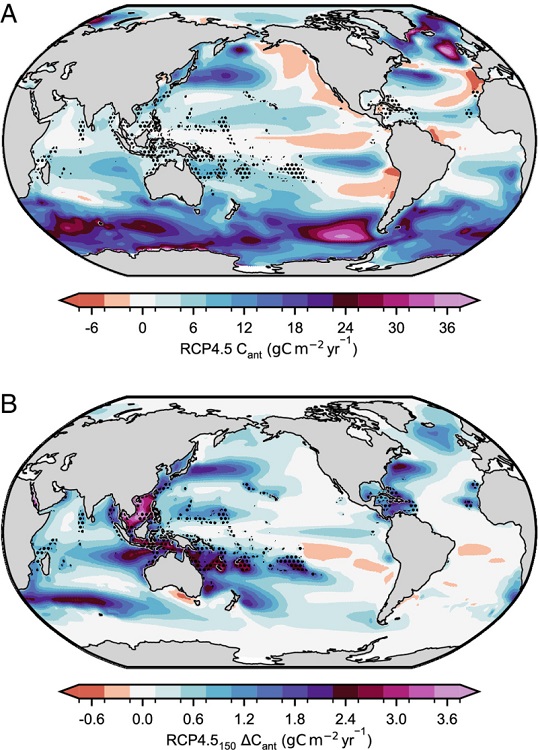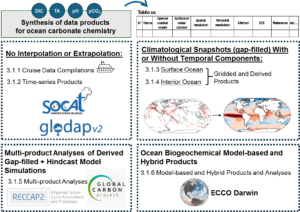Coral decline: an unexpected boost to the ocean carbon sink
A research published in PNAS reveals that the future reduction in coral calcification, a consequence of climate change, could paradoxically increase CO2 absorption by the ocean. This negative climate feedback, which is not yet included in current models, could slightly alter estimates of the global carbon budget.
As true pillars of marine biodiversity, coral reefs are particularly vulnerable to ocean warming and acidification. Their calcification (formation of calcium carbonate skeletons), which is essential for the formation of reef structures, is rapidly declining.
When they calcify, corals secrete carbonates and release CO2 into seawater, slightly reducing the ocean’s ability to absorb CO2.
If this trend continues, their net dissolution could occur even in moderate emission scenarios. Despite their ecological importance, these ecosystems are not represented in current climate models of the carbon cycle.
The authors used recent estimates of the sensitivity of coral calcification to climate change. They were thus able to deduce the changes in seawater chemistry resulting from the anticipated decline in reef calcification on a global scale. Then, using an ocean biogeochemical model, they simulated the impact of these chemical changes on ocean carbon uptake under different emission scenarios, while taking into account the uncertainty of historical calcification rates.

Carbon uptake enhancement extends beyond the regions of coral reefs. The (A), mean ocean anthropogenic carbon uptake in 2081 to 2099 of RCP4.5 and the (B), coral reef-driven anomaly in ocean anthropogenic carbon uptake in 2081 to 2099 of RCP4.5Stippling indicates the distribution of coral reefs. D. R.
A double-edged sword for the planet
According to the study, this anticipated decline in coral calcification could increase the ocean carbon sink by up to 1.25 gigatonnes of CO2 per year by 2050. This would represent a 5% increase in cumulative carbon absorption by the ocean during the 21st century compared to current estimates.
The increase in ocean carbon uptake linked to the decline in coral calcification is a negative climate feedback, a concept that current climate models do not take into account. This could lead to an upward revision of the remaining carbon budget, particularly in view of the +2°C target set by the Paris Agreement.
However, this potential ‘beneficial’ effect on the climate cannot compensate for the loss of essential ecosystems. “Even if this work shows that the degradation of coral reefs can have certain beneficial effects on the climate, we must not forget that this comes at a huge cost in terms of biodiversity, coastal protection and fishing. Environmental policy decisions clearly need to take into account much more than just the carbon aspect,” says Alban Planchat, co-lead author. This is a warning that should be taken into consideration in any environmental policy.
More
Reference
Declining coral calcification to enhance twenty-first-century ocean carbon uptake by gigatonnes. PNAS, 2025
Contact
Laurent Bopp, Laboratoire de météorologie dynamique (LMD-IPSL) •
Source: CNRS Terre & Univers.






